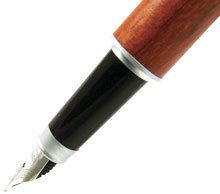Letter to the Editor
 Dear Sir:
Dear Sir:
Richard Rhoda’s article, “The Psychology of Conservatism and Liberalism” in the November Ojo del Lago was most interesting. Americans need to consider an important aspect of our political landscape—psychology. I would like to make a couple of comments and register one objection.
May I suggest that the “liberal/conservative dimension” itself be examined. This is a broad dimension, I believe, a continuum not a simple “either or,” “black/white” concept. For example, conservatives like John Dean, Kevin Phillips and others take great exception to the kind of “conservatism” demonstrated by the current version of the Republican Party and Tea Party enthusiasts. Many conservatives as well as liberals have concluded that today’s GOP has been captured by right-wing extremists. Dean studied authoritarianism, in particular the work of Prof. Robert Altemeyer, prior to writing Conservatives Without Conscience (2006). He characterizes the tea partiers as the “same old authoritarian conservatives with a new label.” Indeed, the labels: “liberals,” “conservatives,” and “progressives” are tossed about too casually these days so that their meanings have been lost.
For Mr. Rhoda’s future articles on this subject, I also believe it would be of interest and relevant to mention that the personality studies to which the Blocks referred (Erich Fromm (1941), et al)were initiated because of the concern about the cause of fascism in the 1930s and its horrific consequences. Authoritarianism has again been raised in this era as a concern of no small importance. There are other studies that examine the ways in which liberals and conservatives think differently. One of them, the PIPA study (U. of Maryland), examined Bush vs Kerry voters. It found that Bush supporters tended to ignore dissonant information—that they resisted information, suggesting they were given to motivated reasoning—people given to finding conclusions to support their beliefs as opposed to critical thinking. There may be other studies of interest.
My objection: the cartoon images that accompanied the article. The “liberal” stereotype strikes me as yet another reflection of grossly distorted propaganda about liberals for political purposes. There has been a deliberate attempt by the current crop of ideologically rigid, right-wing conservatives to portray liberals in caricature form in order to discredit them. The El Ojo conservative image is made to appear more “mainstream,” reasonable, presentable, acceptable in “good” (corporatist?) company, etc., while the image of the liberal is obese, unattractive, dressed liked a hippy, sloppy, etc.
Some liberals no doubt do resemble Michael Moore (no sartorial beauty), but the liberals most familiar to me look like FDR and Eleanor Roosevelt, Will Rogers, Harry Truman, John F. Kennedy, Thurgood Marshall, Lyndon Johnson, Rep. John D. Lewis, Jesse Jackson, the Clintons, Nancy Pelosi; journalists and scholars like James Baldwin, William Greider, John B. Judas, Greg Palast, Maya Angelou, Thomas Englehart, Elizabeth Drew, Bill Maher, Bob Herbert, Robert Kuttner, E. J. Dionne, Jr., Van Jones, Robert Borosage, Paul Krugman, Joseph Stiglitz; celebrities like Paul Newman, Oprah Winfrey, Lauren Bacall, Alec Baldwin, Susan Sarandon, et al, et al, et al. None of these liberals bear any resemblance to your article’s cartoon character. I believe the list of journalists and scholars among the liberal camp is far lengthier than found among conservatives, and these individuals would not be fairly represented by such a figure as you’ve published with your article. I don’t believe the clothing preferences of both groups are so different (jeans are ubiquitous in both!), although clothing preferences is an interesting idea to pursue. In reality, don’t most liberal and conservative Americans look more alike than not? It is their worldviews, beliefs, rhetoric, demeanor, behavior and actions, protest signs—in effect, the ways in which they think, process information and reason that differs. I suggest one needs to be mindful of the implications of photos, graphics. This liberal would appreciate your reappraising your graphics.
Sincerely,
Beverly Bandler
(Ed. Note: We should have made more clear that Rick Rhoda was simply quoting (in the main) an article “The Psychology of Conservatism and Liberalism” that he had read.)









